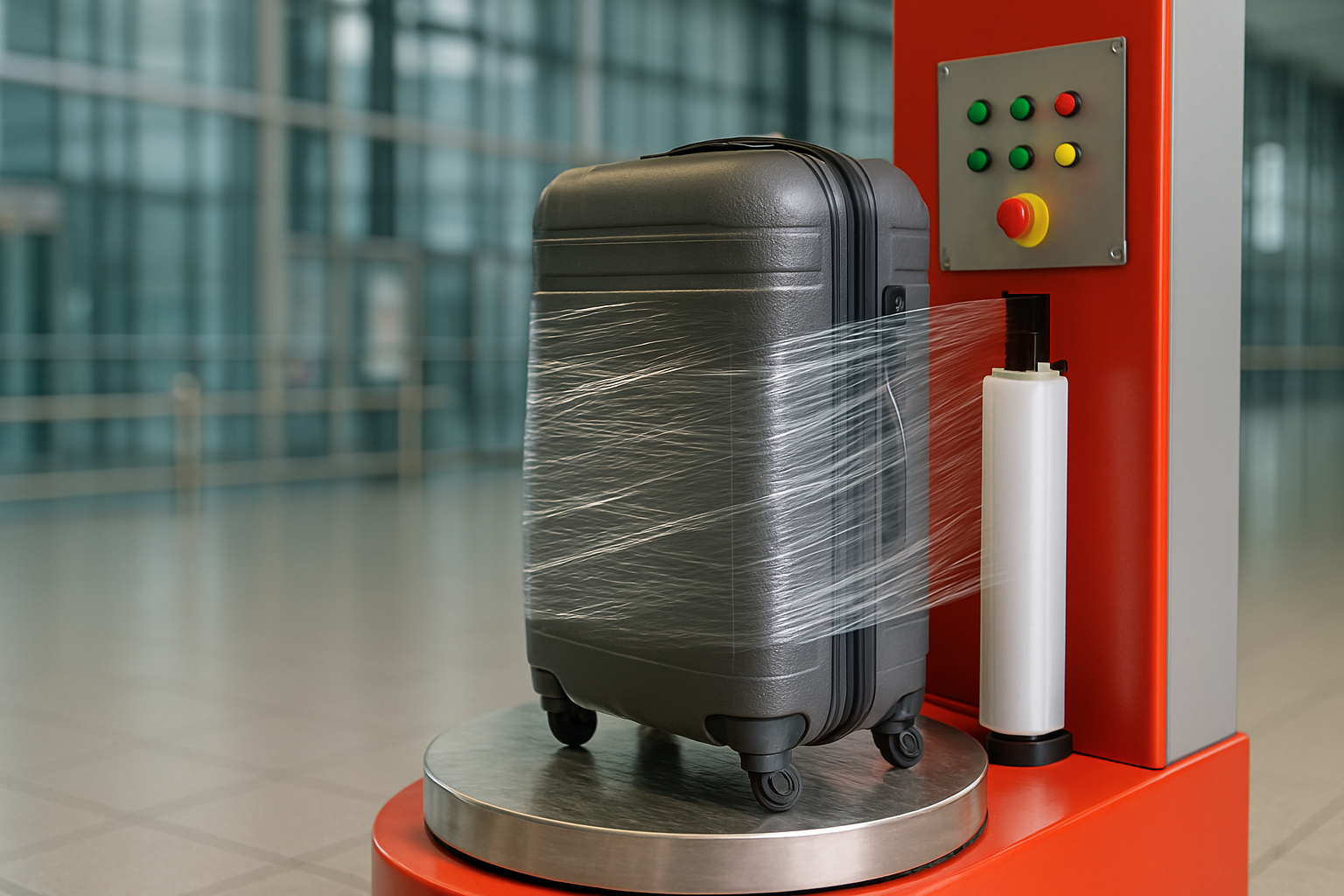Travelers wrap their checked bags in plastic for several reasons, like keeping them clean and secure. But if the TSA needs to inspect your luggage, the plastic won’t stop them—they’ll just cut through it to do their usual checks.

Airports have some pretty unusual jobs. There are “bird guys” who scare off birds, crews that clean the lavatories, and even people paid to wrap luggage in plastic. The first two make sense—keeping runways clear and planes clean is important—but the third one leaves many travelers puzzled. Still, luggage-wrapping stations have been a common sight at major U.S. international airports since the early ‘90s. They’re even more popular overseas. One Miami-based company, Secure Wrap, has over 500 employees wrapping bags in airports across 17 countries.
Why do passengers wrap their luggage?
People do it for all sorts of reasons. Some want to protect their suitcase from scratches, while others worry about their belongings inside. A few travelers think wrapping their bag might make it less likely to be searched by the TSA or tampered with by thieves—or worse, someone planting something illegal inside. That’s why luggage wrapping is especially common in high-risk destinations. For example, in 2015, Manila’s Ninoy Aquino International Airport made news for a supposed “planted bullet” scam. Locally called the laglag-bala scam, corrupt airport staff were accused of slipping bullets into passengers’ bags, then demanding bribes to avoid arrest for carrying ammunition.
Some travelers, particularly those flying to places like the Maldives or Australia—where flights are sprayed with insecticide—wrap their bags to shield their stuff from chemicals. One Reddit user flying into China regretted not wrapping their bag, saying their clothes got drenched in disinfectant. And then there are those who wrap their luggage because their suitcase is falling apart or the zipper’s busted. Paying $15 (Secure Wrap’s price at Miami International Airport) to wrap a damaged bag is way cheaper than buying a new one last-minute.
What does the TSA do with wrapped luggage?
TSA spokesperson Lorie Dankers tells Travel + Leisure that wrapped bags get the same treatment as unwrapped ones. Every checked bag goes through screening before being handed to airline staff for loading. In the U.S., that’s about 1.3 million bags a day. The TSA (and its international counterparts) use 3D X-ray scanners to check for explosives or hazardous materials. Some airports also use bomb-sniffing dogs. Plastic wrapping doesn’t affect X-ray scans or throw off the dogs.
Around 95% of bags pass screening without needing a physical inspection. But if a bag gets flagged, it’s opened—meaning plastic wrap gets cut and non-TSA-approved locks are broken. In the U.S., inspections happen in a monitored area with CCTV to prevent tampering. While TSA agents repack the bag and leave a note explaining the search, they won’t rewrap it in plastic.
Some wrapping companies, like Secure Wrap, offer free rewrapping if the TSA cuts the plastic. They also provide guarantees matching airlines’ compensation for lost or damaged luggage—though these come with plenty of fine print.
What else can you do to keep luggage secure?
While some wrapping companies claim their plastic is 100% recyclable, many airports are considering bans due to environmental concerns. Luckily, there are other options. You can use TSA-approved locks or luggage straps, or invest in a reusable cover if you’re worried about looks.
